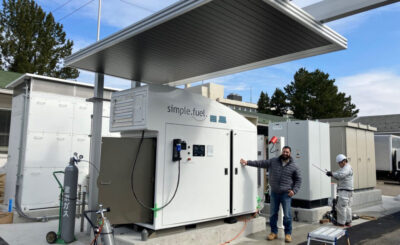How can the world find sustainable, eco-friendly sources of biofuel without compromising the food supply? The answer might be found in algae oil farms.
Scientists around the globe are searching for renewable, sustainable forms of energy to meet consumer demands and replace fossil fuels, and one unlikely candidate keeps coming to their attention time and again: algae.
Usually the bane of fish tanks and ponds, algae produces fatty oils that can be processed into gasoline, biodiesel and jet fuel. Algae oil is quite literally a “green fuel” in more ways than one. It does not carry the environmental impact of other biomass fuels such as soy or corn. It can grow practically anywhere there is sunlight, and it can produce up to 100 times more oil per acre than traditional biofuel crops.
Concerns About Traditional Biofuels
There are several environmental concerns surrounding the production of biofuels from soy, jatropha and other crops. The large volume of biomass needed to provide a significant quantity of biofuel raises concerns over the industrial farming techniques used to produce high volumes of these crops. Industrial farms typically also use large amounts of pesticides and fertilizers, which can pollute the surrounding soil and groundwater supplies.
Water use is also an issue, as the current production methods for biodiesel and other green fuels can put even more of a strain on decreasing freshwater supplies worldwide. There is already a lack of clean water sources in many parts of the world, and a large increase in agricultural waste will only make this problem worse.
Probably the most important concern for many is the use of food crops for fuel. With food shortages already affecting many millions of people in developing countries, recent increases in corn prices due to increased ethanol production are being felt by empty stomachs around the world. Increasing the volume of crops used for biofuel instead of food will only compound this problem.
Algae Oil to the Rescue
Producing biofuels from algae oil instead of food crops eliminates all of these concerns. Algae can grow anywhere there is available sunlight, which eliminates the need for large-scale biomass production on industrial farms. This allows fertile land to be utilized for food crops instead of fuel.
Algae can also be grown in many different water conditions. In the U.S., NASA scientists are currently working to develop methods to float algae farms in the ocean using wastewater. If NASA is successful in developing this technology, the process could completely eliminate the need for land and freshwater in biofuel production while reducing carbon dioxide in the atmosphere and purifying wastewater at the same time.
Algae Oil Production Still in the Early Stages
There is much research to be completed before algae oil can completely replace petroleum as a source of fuel. Different species of algae produce different amounts of oil, and biologists are currently looking for ways to increase the oil output of the most promising species.
The cost of production is another hurdle scientists and manufacturers will need to overcome to make algae biofuels viable in the market. Production costs of algae biofuels currently run anywhere from $10 to $40 per gallon, but the prices could become much more competitive if the process can be refined.
DARPA, the research branch of the U.S. Department of Defense, has recently awarded millions of dollars in research contracts to several different laboratories in an effort to make that happen. The government is interested in developing the technology to eventually reduce or eliminate American dependence on foreign oil.
The possible benefits of oil production from algae biomass are well worth the price of the research needed to refine this technology. With support from the public and private sectors coming in, the day may not be far off when people can satisfy their energy needs from pond scum.








